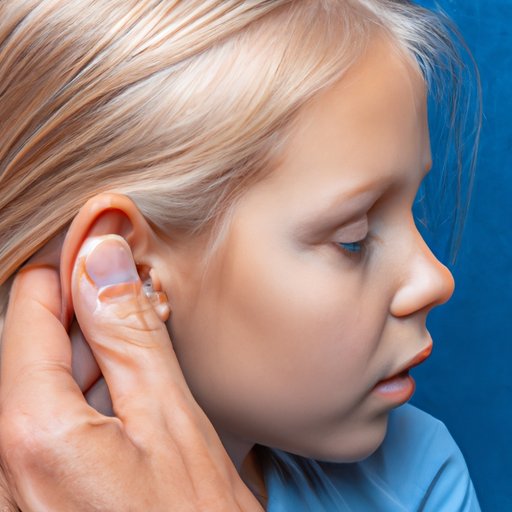
I. Introduction
Ear pain is a common condition that affects people of all ages. The discomfort can range from a mild ache to intense pain that can interfere with daily activities. Not only does ear pain disrupt sleep, but it can also lead to headaches and a constant sensation of pressure in the ear. This article provides detailed information on how to stop ear pain using five simple remedies for ear pain relief.
II. Top 5 Home Remedies for Ear Pain Relief
Ear pain can be very uncomfortable, but fortunately, there are several home remedies that can help relieve the discomfort. One of the most effective remedies is the use of warm compresses. Placing a warm compress over the ear can help reduce pain and inflammation. Another remedy is the use of essential oils such as tea tree oil or lavender oil. Applying a few drops of these oils to the affected ear can help relieve pain and inflammation. Over-the-counter pain relievers such as ibuprofen or acetaminophen can also be effective, as well as natural remedies such as ginger or garlic.
III. Common Causes and Treatment of Ear Pain
Ear pain can be caused by a variety of factors such as ear infections, wax buildup, and swimmer’s ear. Ear infections are among the most common causes of ear pain. If you suspect that the ear pain is caused by an infection, it is important to seek medical treatment immediately. Wax buildup can also cause ear pain and discomfort. In such cases, it is recommended to hold warm water in the ear and then drain it out. Also, avoid using cotton swabs to clean earwax as it may push it further into the ear canal. Moreover, swimmer’s ear is a type of ear infection that affects the outer ear canal. Symptoms usually include pain, redness, and swelling of the ear. It can be treated with over-the-counter ear drops, but it is recommended to seek medical attention if the condition worsens.
IV. Ear Pain in Children: How to Spot It and What to Do
Dealing with ear pain in children can be challenging. Common signs of ear pain in children include excessive crying, ear pulling, and difficulty sleeping. Comforting the child with a warm compress or soothing music can help ease the discomfort. However, it is important to seek medical attention if the child is experiencing prolonged ear pain or fever.
V. Chronic Ear Pain: When and How to See a Doctor
Chronic ear pain can be a sign of a potentially serious condition. Some warning signs include hearing loss, dizziness, and persistent fever. If any of these symptoms occur, it is important to seek medical intervention. In such cases, the doctor may prescribe antibiotics or recommend ear surgery.
VI. How to Prevent Ear Pain: Tips for Avoiding Common Triggers
Preventing ear pain can be done through simple measures such as avoiding exposure to loud noise, wearing earplugs while swimming, and regularly cleaning the ear canal. It is important to properly dry the ears after swimming or bathing, and avoid using cotton swabs to clean the ears. Moreover, maintaining good hygiene and a healthy lifestyle can significantly reduce the risk of ear pain.
VII. Conclusion
Ear pain can be uncomfortable and sometimes debilitating. However, with the tips provided in this article, it is possible to relieve ear pain and prevent it from occurring in the future. Whether it’s through natural remedies, medical treatment, or preventative measures, better ear health is within reach.





